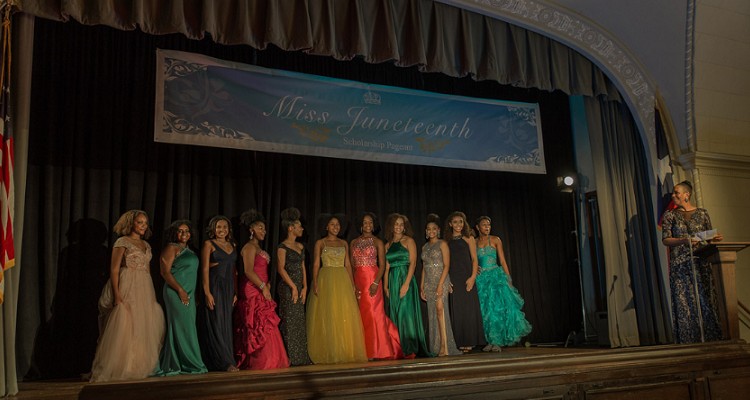A mother-daughter relationship sits at the heart of Miss Juneteenth, in a way that isn’t compounded for drama or written as a tragedy. Their love for each other is quiet and slow, much like the ebbing small-town America that is created for its setting. Director Channing Godfrey Peoples brings together a striking showcase of how effective minimalism can be in a story about such an intimate relationship, a sense of community and family that underlines the importance of telling stories that forefront the experience of Black women and mothers.
Turquoise Jones (Nicole Beharie) introduces herself holding the yellow gown she wore the year she won the Miss Juneteenth pageant, a contest which seeks to empower, educate, and create educational opportunities for Black girls. So named to commemorate the abolition of slavery in 1865 in the US, two years after Lincoln’s Emancipation Proclamation of 1863. 15 years later, single mother Turquoise is prepping her own daughter, Kai (Alexis Chikaeze), for the pageant so that she might use the prize – a scholarship to any historically Black college – to better ends than she did. But, as expected, parental pressure and Kai’s reluctance to take up the tradition puts a strain on their relationship. All the while, Turquoise is struggling to find the money for bills, rent, and pageantry costs without any help from Kai’s father, and Turquoise’s quasi love interest, Ronnie (Kendrick Sampson).
Both Beharie and Chikaeze are outstanding here. The moments they share together onscreen are the ones most powerful in the film, whether they are arguing or privately celebrating a birthday. Their relationship is well-drawn and brought to life by two excellent performances. As the eyes and ears of Miss Juneteenth, Turquoise’s unwillingness to give up in the face of hardship is carried with grace and care by Beharie. Laden with money-issues, man troubles, and a slew of unforgiving rumours relating to her lack of prosperity following her Miss Juneteenth win, you wouldn’t blame her for breaking down. But Beharie finds strength in that which keeps her going: her love for Kai. She won’t settle for less, not anymore, not for herself or her daughter, and this film depicts that journey in a beautifully subtle way.

Many of the directions taken by the film are seen early on, for example, the talent portion of Kai’s Miss Juneteenth act is not a surprising twist. Yet this is not Peoples’ point. The joy of Miss Juneteenth is found in the way it upends these familiar tropes, instead finding the deeper ambitions and character moments behind these basic archetypes. Kai turning from her mother’s strict plan isn’t undermined by the fact you see it coming, it’s celebrated because of it. The characters are easy to empathise with yet remain complex, there’s depth that even the camera lens can’t quite reach.
Uniquely, throughout the film, a significant amount of time is spent travelling. Early on, there are several moments where the camera sits in Kai’s seat as they drive from school to Turquoise’s work. As they travel silently, we focus in on different houses, each one distinct in its own way. Some more subtly than others. These moments of specificity flesh out the sense of community and individualism that is so prevalent throughout the film. If even the houses on their street are unique, why would Kai want to follow the footsteps of her mother without stopping to make her own mark? Elements such as this just go to highlight the surety of Peoples’ work.
A portrait of resilience and hope, Miss Juneteenth benefits from its minimalist approach and star-making performances. Peoples and DoP Daniel Patterson maintain understated visuals, occasionally to a fault, and Emily Rice’s unfussy score compliments the laid-back style of storytelling. Imbued with a softness that shows Peoples’ understanding of time, place, and people she is writing about, this film is nothing if not a sure sign of great things to come from this debut filmmaker.
Miss Juneteenth is available to watch in UK cinemas and on digital platforms from September 25.




